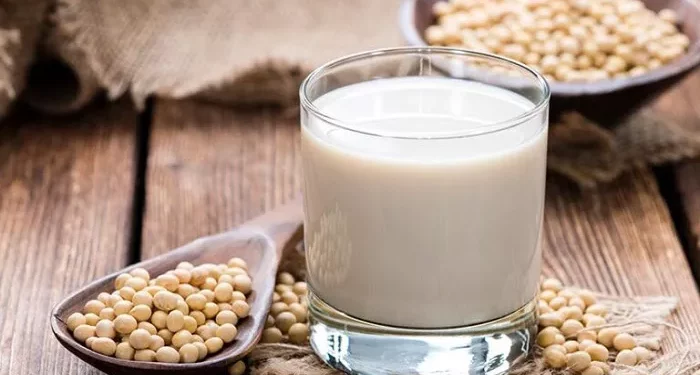Choosing suitable beverages is key for diabetic management, and soy milk—rich in protein, fiber, and bioactive compounds—offers potential metabolic benefits. This article explores how its low glycemic index, plant-based nutrients, and heart-healthy fats support blood sugar control, insulin sensitivity, and overall health in diabetics.
Low Glycemic Index
One of the primary advantages of soy milk for diabetics is its low glycemic index (GI), a measure of how quickly a food raises blood sugar. Most unsweetened soy milk varieties have a GI score between 30–40, significantly lower than cow’s milk (GI 27–32) and far lower than sweetened dairy or plant-based alternatives like rice milk (GI 77). While cow’s milk has a similar GI, soy milk offers an edge in carbohydrate composition: it contains minimal natural sugars (1–2 grams per cup) and higher amounts of complex carbohydrates and dietary fiber, which slow glucose absorption.
The fiber in soy milk, particularly soluble fiber, forms a gel-like substance in the digestive tract, delaying stomach emptying and reducing the rate at which enzymes break down carbohydrates into glucose. This prevents postprandial blood sugar spikes, a critical benefit for both type 1 and type 2 diabetics. Additionally, the protein content in soy milk (6–10 grams per cup, depending on fortification) further blunts glucose responses by stimulating insulin secretion and enhancing satiety, creating a synergistic effect on glycemic control.
Plant-Based Protein Power
Soy milk stands out among plant-based milks for its complete protein profile, containing all nine essential amino acids. Each cup provides roughly 8 grams of protein—comparable to cow’s milk—making it an excellent alternative for diabetics who avoid animal products or seek to reduce saturated fat intake. Dietary protein plays a key role in preserving lean body mass, crucial for maintaining metabolic rate and insulin-mediated glucose uptake in muscles.
Research links higher protein intake to improved insulin sensitivity and better glycemic control, particularly in type 2 diabetes. The protein in soy milk, unlike some animal proteins, is not associated with increased inflammation or oxidative stress. Instead, it contains bioactive peptides that may enhance pancreatic beta-cell function and reduce insulin resistance. For diabetics at risk of kidney disease (a common complication), the moderate protein content in soy milk (when consumed in recommended amounts) is gentler on the kidneys than high-animal-protein diets, offering a balanced approach to nutritional support.
Isoflavones and Insulin Sensitivity
Soybeans are rich in isoflavones—phytoestrogens with antioxidant and anti-inflammatory properties—and soy milk retains a significant portion of these compounds. Genistein and daidzein, the main isoflavones in soy, have been shown to improve insulin sensitivity by activating peroxisome proliferator-activated receptors (PPARs), which regulate glucose and lipid metabolism. In insulin-resistant cells, isoflavones enhance glucose uptake by increasing the expression of glucose transporter type 4 (GLUT4), the primary protein responsible for shuttling glucose into muscle and fat cells.
Clinical studies in type 2 diabetics have observed modest reductions in fasting blood glucose and hemoglobin A1c (HbA1c) levels with regular soy consumption. These effects are thought to arise from both the direct action of isoflavones on metabolic pathways and the indirect benefits of replacing high-glycemic foods with soy milk. Importantly, isoflavones do not interfere with insulin secretion or medication efficacy, making them a safe component of diabetic nutrition when consumed within recommended limits (25–50 mg daily, equivalent to 1–2 cups of unsweetened soy milk).
Heart-Healthy Fats
Diabetics often face elevated cardiovascular risk, making dietary fats a key consideration. Soy milk contains no cholesterol and is low in saturated fat (1–2 grams per cup), unlike whole cow’s milk (5 grams saturated fat per cup). The majority of its fats are unsaturated, including monounsaturated fats (which improve HDL cholesterol) and polyunsaturated fats, particularly omega-3 and omega-6 fatty acids in a balanced ratio. While omega-6s in excess can promote inflammation, soy milk’s omega-6 content is moderated by its high omega-3 alpha-linolenic acid (ALA), which has anti-inflammatory effects.
The combination of low saturated fat, high unsaturated fat, and soluble fiber in soy milk helps lower LDL cholesterol (“bad” cholesterol) and triglycerides, two markers strongly linked to atherosclerosis. A meta-analysis of 30 studies found that replacing animal proteins with soy protein reduced LDL by 3–4%, a clinically meaningful improvement for diabetic patients aiming to protect their heart health. By incorporating soy milk into a diet low in processed meats and refined fats, diabetics can simultaneously manage blood sugar and reduce cardiovascular risk factors.
Nutrient Density Without the Caloric Burden
Maintaining a healthy weight is critical for diabetes control, and soy milk offers nutrient density without excessive calories. A typical cup of unsweetened soy milk contains 80–100 calories, similar to skim cow’s milk but lower than nut milks like almond milk (which often have fewer nutrients per calorie). Its protein and fat content promote satiety, reducing hunger and preventing overeating—a common challenge in weight management.
For diabetics prone to obesity or metabolic syndrome, replacing high-calorie, sugary beverages with soy milk can create a caloric deficit while delivering essential nutrients like calcium, vitamin D (in fortified varieties), and potassium. These minerals are vital for bone health, blood pressure regulation, and nerve function—all areas affected by diabetes. The absence of added sugars in plain soy milk further supports weight goals, as sugar-sweetened drinks are a major contributor to empty calories and glycemic instability.
Addressing Concerns
While soy milk offers numerous benefits, it is important to address potential concerns. Some individuals worry about soy’s phytoestrogens affecting hormone levels, but research in humans shows no significant impact on estrogen or testosterone levels in healthy adults, including postmenopausal women and men with diabetes. For those with soy allergies, obviously, soy milk is not suitable, but this is a rare condition affecting less than 0.5% of the population.
Another consideration is goitrogenic compounds in soy, which can interfere with thyroid function in large amounts. However, cooked or processed soy (like soy milk) has reduced goitrogen activity, and moderate intake (≤2 cups daily) is safe for most people, including those with hypothyroidism taking thyroid medication. Additionally, choosing unsweetened, unflavored varieties avoids added sugars and unnecessary ingredients that could compromise glycemic control.



























